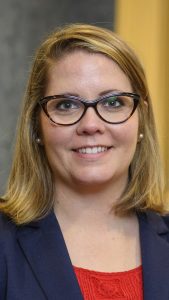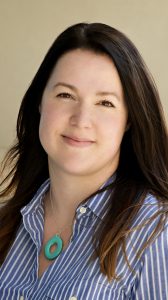OXFORD, Miss. – The University of Mississippi is home to a new center that aims to empower local communities to take charge of their community development, policy change and resilience building by using data and the arts.
The UM Community First Research Center for Wellbeing and Creative Achievement, or UM: CREW, will be a resource for Mississippi communities – from counties and cities to groups of citizens – to create, access, analyze and apply knowledge and data to improve community well-being and local and regional decision-making.
The co-directors of the new center are Anne Cafer, assistant professor of sociology, and Meagen Rosenthal, assistant professor of pharmacy administration.
“This center provides the university with an opportunity to work with and for communities in promoting health and well-being,” Cafer said. “The model we use guides communities and community organizations through the research processes so they can make informed, data-driven decisions about what’s best for their community.
“This fundamentally shifts the dynamic for the university-community relationship from one of outward knowledge delivery to a co-production model with mutual benefit.”
UM: CREW, based in the Office of Research and Sponsored Programs, has several goals, including being a resource for communities applying for funding grants to improve community well-being and also aiding communities in designing humanities and art workshops and projects, whether they be in the visual arts, music, dance or theatre arts.
The center also will become a mechanism for Ole Miss students to learn about conducting engaged, community-centered research projects and act as a facilitator between university researchers and Mississippi communities in need of researchers’ skills.
“Through participation in the activities of the center, students will not only receive training on how to engage with communities in a meaningful way and help to flip the traditional research model, but also gain important and transferable skills in effective communication, consensus building and the application of data to decision-making,” Rosenthal said.
The center will provide educational offerings to communities in areas such as evidence-based decision-making, community health, assessing community needs, locating relevant data sources, identifying appropriate research methods and writing grant proposals or policy briefs.
These educational offerings will provide communities the skills and knowledge necessary to identify, investigate and address issues important to them. The skills and knowledge also will better prepare communities to work with Ole Miss faculty, staff and students as equal partners in the advancement of programs related to community needs.
“UM is lucky to be in a state with a culturally rich and diverse group of communities, and we are committed to engaging with those communities on a variety of levels,” said Josh Gladden, vice chancellor for research and sponsored programs. “UM: CREW is an exciting new model for community-engaged research in which the communities help design the right research questions, goals and methodologies.
“We are confident the result will be outcomes that benefit both the university and communities around the state.”
The center’s work will complement existing university offices, such as the Center for Population Studies, the McLean Institute for Public Service and Community Engagement, the Office of Diversity and Community Engagement and others.
Although UM: CREW is new, it is already working with partners in Mississippi and elsewhere, including the James C. Kennedy Wellness Center in Charleston, the Marks Project in the Mississippi Delta, Parents for Public Schools and the El Centro College campus of the Dallas County Community College District.
The center is an outgrowth of the university’s Flagship Constellations initiative, which was unveiled in November 2017 as a collaborative effort among faculty, staff and students from the university’s Oxford campus and the University of Mississippi Medical Center to explore and solve complex issues through the diversity of ideas. The initiative includes multidisciplinary teams working to find solutions to grand challenges in the areas of brain wellness, community well-being and disaster resilience.
Cafer and Rosenthal are team leaders of the Community Wellbeing Flagship Constellation along with Seena Haines, chair and professor of pharmacy practice at UMMC.
The plan for UM: CREW was developed with input from the constellation’s steering committee, which includes nearly two dozen students, faculty and staff members from more than 15 departments and offices on both campuses, ranging from theatre arts to biomolecular sciences.
The Community Wellbeing Flagship Constellation has established a track record of funding success. As of April 1, 20 externally sponsored projects that are either primarily associated with or related to the constellation have brought in more than $1.7 million in funding to the university.

